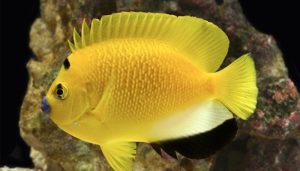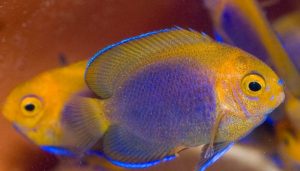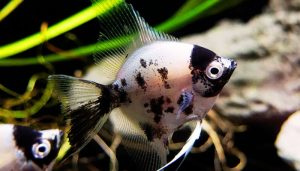Are Guppies Hardy? This is a question that many fish enthusiasts ask before deciding to get these colorful creatures as pets. Guppies are popular among beginners because they are easy to care for and breed, but their hardiness is often debated.
While it’s true that guppies are generally hardy fish, there are certain health risks that owners should be aware of.
In this blog post, we’ll reveal five shocking health risks that guppies can face, despite their reputation for being hardy.
From common diseases to environmental factors, we’ll explore the potential dangers that can threaten your guppy’s health.
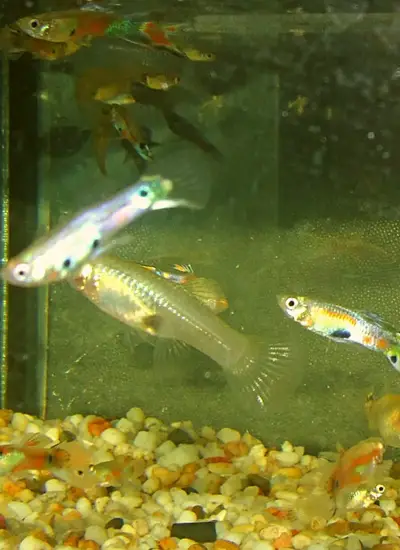
Understanding these risks allows you to take preventative measures and provide the best possible care for your beloved guppies.
So, are guppies as hardy as they seem? Keep reading to find out and discover how you can keep your guppies healthy and happy.
Table of Contents
ToggleAre Guppies Hardy Fish?
Guppies are tropical fish often considered hardy, but they are still susceptible to several health problems. This definitive blog post will discuss the most common health risks guppies face. We will also provide tips on preventing these problems and keeping your guppies healthy and happy.
5 Common Health Risks in Guppy Fish
1. Dropsy
Dropsy is a condition that causes the abdomen of a fish to swell. A bacterial infection often causes it, but other factors, such as poor tank water quality or a lack of oxygen, can also cause it. Dropsy is a severe condition and can be fatal if not treated.
2. Fin Rot
Fin rot disease is a bacterial infection that causes the fins of a fish to start to deteriorate. It is often caused by poor tank water quality or a lack of oxygen. Fin rot issues can be treated with antibiotics, but it is essential to address the primary cause of the infection to prevent it from recurring.
3. Ich
Ich disorder is a parasitic infection that causes white spots to appear on the body of a fish. It is usually caused by poor water quality or a lack of sanitation. Ich can be treated with medications, but it is essential to quarantine affected fish to prevent the spread of the infection.
4. Swim Bladder Disease
SBD Swim bladder disease is a condition that affects the swim bladder of any fish, a gas-filled organ that helps the fish maintain its buoyancy. Some factors, including poor water quality, a lack of oxygen, or injury, can cause swim bladder disease. Swim bladder disease can be treated with medications, but it is essential to address the condition’s underlying cause to prevent it from recurring.
5. Genetics
Some guppies are more susceptible to specific health problems than others. This is often due to genetics. If you have a guppy prone to a particular health problem, it is essential to take extra care to prevent the problem.
Preventing Health Problems in Guppies
You can do several things to prevent health problems in guppies. These include:
- Providing a clean and healthy environment.
- Feeding a balanced diet.
- Quarantining new pet fish before adding them to your tank.
- Testing your tank water regularly.
- Treating any problems early.
By following these tips, you can help keep your guppies healthy and happy for many years.
What Makes Guppies Hardy?
What Makes Guppies So Hardy? Since guppies are known for their hardy nature, which makes them a popular choice among fish enthusiasts. What makes guppies so rugged is their adaptability to different water conditions.
They can endure various water temperatures and pH levels, making them suitable for freshwater and tropical fish tanks.
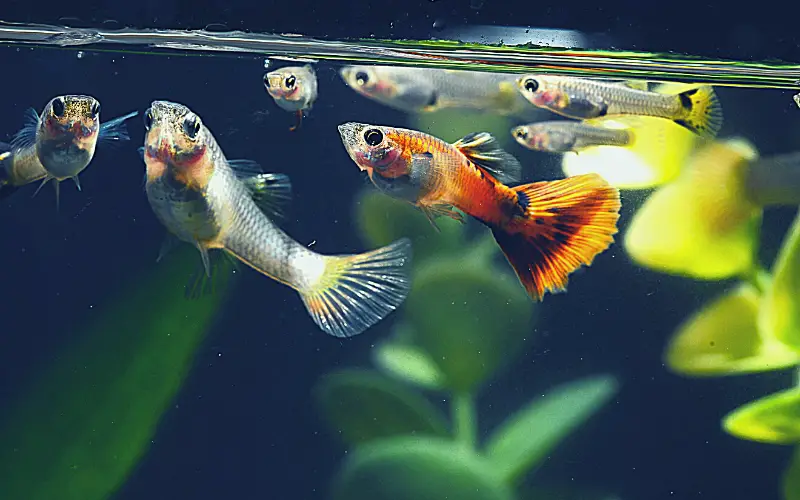
Additionally, guppies are peaceful fish that can coexist in community tanks with other fish. Their ability to get along with different species allows for a diverse and vibrant tank.
Furthermore, guppies have a robust immune system, making them less prone to diseases than other fish. They are also great survivors, able to withstand fluctuations in water quality and recover quickly from stressful situations. Overall, the hardiness of guppies makes them an ideal choice for both beginner and experienced fish keepers.
What Can Affect Your Guppies Health?
Several factors might affect the health of your guppies. The size of the tank and the number of guppies you have in it can have a significant impact.
For example, keeping too many guppies in a small tank can lead to overcrowding and stress, weakening their immune systems and bringing them more susceptible to diseases. It is vital to ensure that your guppy tank is adequately sized, with at least one gallon per adult guppy.
Another crucial factor is the quality of their environment. Adding too many fish at once can also cause stress, so it is best to introduce them slowly.
Providing the right fish food and maintaining a clean tank is vital to support their overall health. Less hardy guppies may require extra care and attention to keep them healthy. Following these guidelines can help make your guppies live a happy and healthy life.
Are Guppies Good for Beginners?
Guppies are an excellent choice for beginners! These hardy fish are perfect for a community tank and are easy to care for. Guppies are among the most famous freshwater fish species with their bright colors and lively personalities.
Guppies need a small tank, as little as 5 gallons, to thrive. Guppies are also very adaptable and can tolerate various water conditions.
Plus, guppies get along well with other fish species! Keep your guppies happy and healthy by providing a balanced diet, regular water changes, and a well-maintained tank.
Guppies’ Natural Habitat
Guppies inhabit slow-moving or stagnant waters in their natural habitat, including streams, ponds, and shallow rivers. These waters often experience fluctuations in temperature and dissolved oxygen levels. Guppies have developed the ability to breathe air from the surface when necessary, contributing to their survival in oxygen-deficient environments.
Guppy Care in Aquariums
It is crucial to provide them with suitable living conditions. To maintain the hardy nature of guppies in captivity, Here are some critical aspects of guppy care in aquariums:
– Tank Requirements for Guppies
Guppies are relatively small fish, and a tank size of 10-20 gallons is usually sufficient for a small group of guppies. The aquarium should have hiding spots and live plants to give them a sense of security.
– Ideal Water Parameters for Guppies
Maintaining proper water parameters is essential for the well-being of guppies. The water temperature should be kept between 60-77°F (15-25°C), and the pH level should be slightly alkaline, ranging from 7.0 to 8.5. Additionally, regular water changes are necessary to keep the water quality optimal.
– Choosing Tank Mates
Guppies are peaceful fish and can coexist with a variety of fish species. However, avoiding aggressive or larger fish that might threaten the guppies is essential.
– Feeding Guppies
Guppies are omnivores and should be fed a balanced diet of high-quality fish food. Additionally, they enjoy live or frozen foods such as brine shrimp and daphnia, which can enhance their health and colors.
– Common Health Issues
Despite their hardy nature, guppies are susceptible to specific health issues. Some common health risks include fungal infections, parasitic infestations, and swim bladder disorders. Regular observation and prompt action can help prevent these issues from becoming severe.
The Hardy Nature of Guppies
Guppies’ hardiness is further reinforced by their ability to adapt to various water conditions and tolerate temperature changes. This resilience makes them ideal for beginner fishkeepers and busy individuals who may need more time for meticulous tank maintenance.
Guppies as Community Tank Fish
Due to their peaceful nature, fish like guppies make excellent community tank fish. They can coexist harmoniously with other non-aggressive species, creating a lively and colorful aquarium display.
Selecting and Caring for Guppies
When selecting guppies for your aquarium, choose healthy individuals from experienced fish breeders or reputable fish shops. Observing the guppies’ activity, coloration, and overall appearance can help you identify healthy specimens.
Breeding Guppies
Guppies are known for their prolific breeding habits, making them a favorite choice for hobbyist breeders. The process of breeding guppies is relatively simple, and they can produce numerous fry with proper care.
Tips for Keeping Guppies Healthy
To ensure the well-being of your guppies, here are some essential tips:
- Maintain a clean and well-maintained aquarium environment.
- Provide a balanced and varied diet to meet their nutritional needs.
- Avoid overstocking the aquarium, as overcrowding can lead to stress and disease.
- Quarantine new pet fish before introducing them to the main tank to prevent potential diseases from spreading.
Why Are My Guppies Suddenly Dying?
If you have noticed that your guppies are suddenly dying in your aquarium, there could be several reasons behind this unfortunate occurrence. Firstly, water quality is crucial for the well-being of your guppies.
Poor water conditions can result in stress and even death for these delicate aquarium fish. It is essential to regularly test the water parameters such as ammonia, nitrite, nitrate levels, temperature, and pH.
Another possible cause could be overcrowding in the tank, which leads to increased stress and competition for resources among the guppies.
Diseases and infections can quickly spread among the fish, causing fatalities. It is important to quarantine any new fish before introducing them to the main tank and to monitor your guppies’ health regularly.
Finally, it is essential to consider the diet of your fish. A lack of proper nutrition or feeding them improper food can weaken their immune systems and make them more susceptible to diseases.
Overall, ensuring a clean and suitable environment is crucial; managing the population, monitoring their health, and providing a balanced diet to prevent further deaths is vital.
What Other Fish Are Hardy?
If you are looking for other hardy fish to add to your tank besides guppies, there are several options to consider. One of these options is the molly, which is known for being a very hardy fish that can thrive in a community tank. They do well in around 10-20 gallons of tanks and can tolerate various water conditions.
Another hardy fish to consider is the platy, similar to the guppy in appearance and hardiness. They also do well in community tanks and require the same care as other fish.
Some other hardy fish you can buy for your tank include danios, barbs, and swordtails. It’s important to remember that no matter what fish you choose, proper care and maintenance of your tank are crucial for the health and well-being of your fish.
Commonly Asked Questions (FAQs)
What are some shocking health risks revealed for guppy fish?
Some shocking health risks that can affect guppies include sick fish, aggressive fish in the same tank, and the risk of diseases and infections from other fish species.
How do I keep my guppies healthy?
To keep your guppies healthy, providing them with a properly maintained freshwater aquarium is crucial. Regular water changes, a balanced diet, and monitoring the water parameters can help ensure the well-being of your guppies.
Are guppies a good choice for a beginner aquarium owner?
Are fancy guppies hardy fish for beginners? Yes, guppies are an excellent choice for beginner aquarium owners. They are easy to care for and are considered one of the most challenging fish species.
Do guppies require any special care?
Are guppies hard to keep? While guppies are hardy fish, they still require some primary care. This includes maintaining good water quality, a proper diet, and ensuring the ideal water temperature for guppies.
Can guppies survive in different water conditions?
Yes, guppies can survive in different water conditions. They are adaptable to various water parameters, but it is essential to maintain a stable and suitable environment for their overall health.
Are guppies prone to diseases?
Guppies can be prone to diseases and infections if kept in poor water or come into contact with sick fish. Regular monitoring and preventive measures can help minimize the risk of diseases.
Can guppies be kept with other fish species?
Guppies fish are compatible with a wide range of fish species. However, it is crucial to choose tank mates carefully to avoid aggression or any potential harm to the guppies.
How do I make my guppies breed?
Guppies are known for their high breeding rate. To encourage breeding, provide a suitable breeding environment, such as a separate tank, proper water conditions, and hiding spots for the fry.
Do guppies require a specific water temperature?
Yes, guppies prefer a water temperature between 70°F and 83°F (21°C to 28°C). Maintaining the ideal temperature range is essential to ensure your guppies’ well-being and breeding success.
Are Endler Guppies Hardy?
Yes, Endler Guppies are generally considered to be hardy fish. They are very similar to regular Guppies regarding care requirements and hardiness. However, as with any fish, there are certain health risks that owners should be aware of to keep their Endler Guppies healthy.
Conclusion
So, are guppies hardy fish species? In conclusion, guppies are undeniably hardy fish species with incredible adaptability and charm. Their ability to survive in various conditions and coexist peacefully with other fish species makes them an excellent choice for beginners and experienced fishkeepers. However, while guppies are hardy, they must be vigilant about their care and well-being to prevent potential health risks and ensure they lead happy and healthy lives in your aquarium.
You might also like
- Saltwater Guppies: 5 Easy Steps to Thriving in Your Tank!
- Most Expensive Guppies in the World: What You Need to Know
- Can Guppies Live Without a Filter: Here’s How to SAVE Them!
- Guppy Tank Size – Structure Your Guppies Tank in Just 6 Steps
- How Many Guppies in a 3 Gallon Tank? (Comprehensive Guide)
- Are Guppies Schooling Fish? Let’s Clear Up All the Confusion
- Guppy Looks Bloated: 3 Surefire Ways to Save Your Fish!
- How Long Can Guppies Survive Without Air Pump? (Solved)
- Raising Guppies in Pond: A Comprehensive Beginner’s Guide!
- 5 Secrets to Achieving Ideal Guppies Water Parameters at Home!
- Best Guppies Temperature Breeding for Success!
- Why Do My Guppies Keep Dying: (5 Major Causes & Best Solutions)


